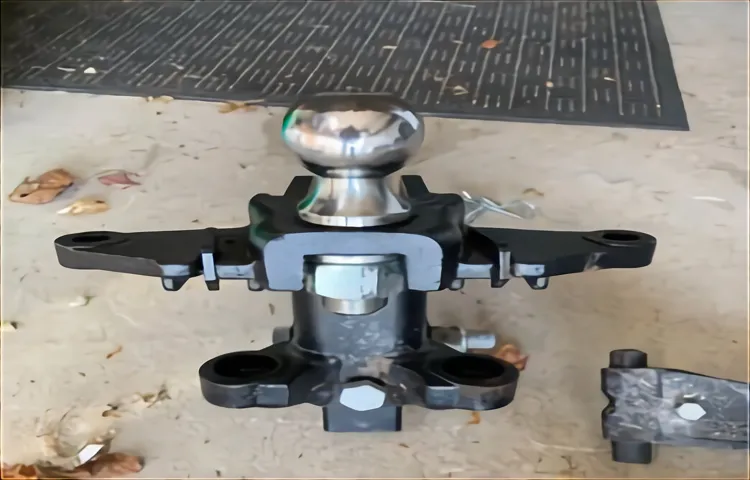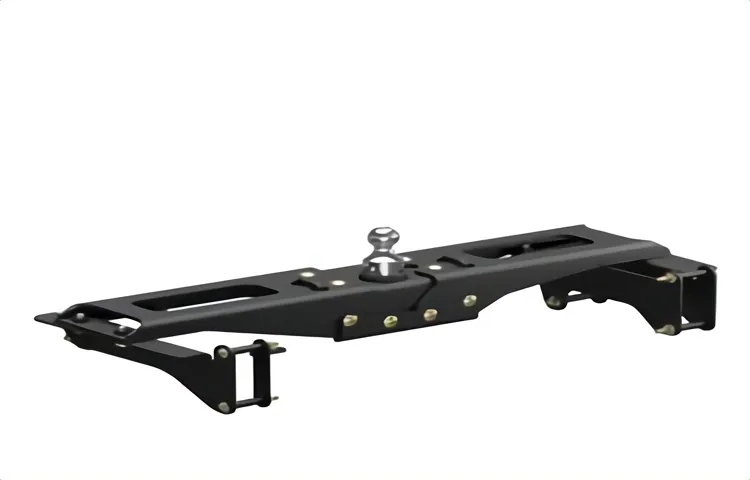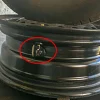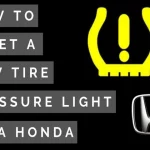What if I told you there was a simple solution to make towing a trailer safer and smoother? Well, get ready to meet your new best friend on the road – the equalizer hitch. Picture it as the superhero of towing, swooping in to save the day by distributing the weight of your trailer evenly across your vehicle and minimizing sway. It’s like having a trusty sidekick that ensures a stable and balanced ride, no matter the size or weight of your cargo.
So, let’s dive into the world of equalizer hitches to understand how they work and why they’re a must-have for any towing adventure.
Table of Contents
Overview
An equalizer hitch is a device used to distribute the weight of a trailer evenly across the towing vehicle, which can be a car or truck. When towing a trailer, the weight of the trailer can cause the front of the towing vehicle to lift, affecting the steering and handling. An equalizer hitch helps in maintaining a level ride, reducing the sway and improving the overall towing experience.
It does this by using spring bars that connect the trailer’s frame to the towing vehicle’s frame, transferring some of the tongue weight from the rear axle to the front axle. This helps to evenly distribute the load and improve stability on the road. Equalizer hitches are especially helpful when towing heavier trailers or when encountering challenging road conditions.
Overall, an equalizer hitch is a valuable tool for anyone who regularly tows trailers, ensuring a safer and smoother towing experience.
Definition of an equalizer hitch
equalizer hitch An equalizer hitch is a device used to distribute the weight of a trailer or caravan evenly across the tow vehicle. It is designed to improve stability and control while towing, especially when dealing with uneven terrain or heavy loads. The hitch works by transferring some of the weight from the trailer’s tongue to the front axle of the tow vehicle, ensuring that both the front and rear axles are equally supported.
This redistribution of weight helps to prevent the front of the tow vehicle from being lifted and the rear from sagging, which can lead to poor handling and increased risk of accidents. In essence, an equalizer hitch acts as a “leveler” between the tow vehicle and the trailer, allowing for smoother and safer towing experiences. Whether you are hauling a recreational trailer, a boat, or even a small camper, using an equalizer hitch can greatly enhance the performance and safety of your towing setup.

How an equalizer hitch works
equalizer hitch, working principle An equalizer hitch is a valuable tool for towing and can greatly improve the stability and control of your vehicle. But how exactly does it work? Well, it all comes down to physics. When you tow a heavy load, such as a trailer or camper, the weight of that load can cause your vehicle to become imbalanced.
This imbalance can lead to a whole host of problems, including swaying, bouncing, and even loss of control. Enter the equalizer hitch. This device is designed to redistribute the weight of your load, ensuring that it is evenly distributed across both your vehicle and the trailer.
By doing so, it helps to create a more stable and controlled towing experience. So how does it do this? The key component of an equalizer hitch is the spring bars. These bars are attached to the frame of your vehicle and to the trailer, creating a bridge between the two.
When tension is applied to the hitch, the spring bars compress and distribute the weight of the load evenly. This helps to level out the vehicle and trailer, reducing the amount of sway and bounce that you may experience. In addition to the spring bars, an equalizer hitch also utilizes a system of chains or brackets that connect the hitch to your vehicle’s frame.
These chains or brackets help to further distribute the weight and provide additional stability. Overall, an equalizer hitch is a simple yet effective solution for towing. It works by redistributing the weight of your load, creating a more stable and controlled towing experience.
So whether you’re towing a trailer or a camper, investing in an equalizer hitch can greatly enhance your safety and peace of mind on the road.
Benefits of using an equalizer hitch
Equalizer hitch An equalizer hitch, also known as a weight distribution hitch, is a valuable tool for towing heavy loads. It is designed to distribute the weight of the trailer evenly across all four wheels of the towing vehicle, which helps improve stability and control while towing. By doing so, an equalizer hitch can greatly reduce the sway and bouncing motion that often occurs when towing heavier trailers.
This not only improves overall safety on the road but also makes driving more comfortable and less stressful. Whether you are towing a camper, boat, or any other large load, using an equalizer hitch can provide significant benefits and help ensure a smoother towing experience.
Types of equalizer hitches
Equalizer hitch types help in distributing the weight of a trailer evenly across your towing vehicle, making it safer and more stable on the road. There are several types of equalizer hitches available, and each has its own unique features and benefits. One common type is the weight distribution hitch, which uses spring bars to transfer some of the trailer’s weight to the front axle of the towing vehicle.
This helps to improve steering and braking control while reducing sway. Another type is the sway control hitch, which uses friction or hydraulic systems to minimize trailer sway caused by crosswinds or passing vehicles. It provides added stability and control, especially when driving at high speeds or in adverse weather conditions.
Additionally, there are combination hitches available that offer both weight distribution and sway control features. These hitches provide the best of both worlds and are ideal for towing larger trailers or RVs. Ultimately, the type of equalizer hitch you choose will depend on your specific towing needs and preferences.
Consulting with a knowledgeable towing expert can help you make the right decision and ensure a safe and comfortable towing experience.
Choosing the Right Equalizer Hitch
Are you towing a trailer or a camper? If so, it’s important to invest in the right equipment to ensure a safe and smooth towing experience. One essential piece of equipment to consider is an equalizer hitch. So, what exactly is an equalizer hitch? An equalizer hitch, also known as a weight distribution hitch, is a device that helps distribute the weight of the trailer evenly across the vehicle and trailer axles.
This helps to improve stability and control while towing, reducing the risk of swaying or fishtailing. In essence, it “equalizes” the weight between the tow vehicle and the trailer, ensuring a better towing experience. Investing in the right equalizer hitch can make a significant difference in the safety and comfort of your towing adventures.
Weight distribution rating
choosing the right equalizer hitch, weight distribution rating
Sway control
equalizer hitch
Compatibility with your towing vehicle
equalizer hitch, towing vehicle, compatibility
Installing an Equalizer Hitch
An equalizer hitch is an essential tool for towing heavy loads with your vehicle, as it helps distribute the weight evenly across the trailer and the tow vehicle. This type of hitch is especially useful when towing large trailers or RVs, as it reduces the strain on your vehicle’s suspension and improves stability on the road. It works by using spring bars that connect the trailer to the tow vehicle’s frame.
These bars apply tension to the hitch and help distribute the weight of the trailer more evenly, reducing the sway and bouncing that can occur during towing. Installing an equalizer hitch is relatively straightforward, but it’s important to ensure that it is properly adjusted and fitted to your specific vehicle and trailer. It’s also crucial to regularly inspect and maintain the hitch to ensure its continued effectiveness.
With an equalizer hitch installed, you can enjoy a safer and more comfortable towing experience, knowing that your trailer is properly balanced and well-supported.
Tools and equipment needed
equalizer hitch, tools and equipment for installing equalizer hitch
Step-by-step installation process
Installing an equalizer hitch may seem like a daunting task, but with the right instructions, it can be a straightforward process. Here is a step-by-step guide to help you install an equalizer hitch on your vehicle.
Start by preparing your vehicle and trailer. Make sure both are on level ground and that the trailer is properly attached to the hitch receiver on your vehicle.
Next, remove the bars and weight distribution head from the equalizer hitch kit. Place the head onto the shank, making sure it is secure and tightened properly.
Position the shank into the hitch receiver on your vehicle. Use the hitch pin to secure it in place, ensuring it is tightly fastened.
Attach the spring bars to the weight distribution head. Make sure they are adjusted to the correct height for your specific setup. This will help distribute the weight evenly between your vehicle and trailer.
Connect the spring bars to the trailer’s frame using the provided chains or brackets. Make sure they are attached securely and that there is no excessive slack.
Using an Equalizer Hitch
Equalizer hitches are a type of towing equipment commonly used to balance the weight distribution of a trailer being towed behind a vehicle. They help to evenly distribute the weight of the trailer across all four wheels of the towing vehicle, reducing the strain on the rear axle and improving overall stability and control. Imagine you’re carrying a heavy backpack on one shoulder versus evenly distributing the weight across both shoulders – an equalizer hitch works in a similar way.
By using integrated sway control systems, these hitches also help to minimize trailer sway, making towing safer and more comfortable. Overall, an equalizer hitch is a valuable tool for anyone who frequently tows heavy trailers and wants to ensure a smoother and safer towing experience. So next time you hit the road with a trailer in tow, consider using an equalizer hitch to make your journey more pleasant and worry-free.
Proper adjustment and maintenance
Proper adjustment and maintenance are crucial when using an Equalizer Hitch for your towing needs. This type of hitch is designed to distribute the weight evenly between your tow vehicle and the trailer, reducing the strain on your vehicle and improving overall stability. To ensure the best performance and safety, it’s important to adjust the hitch properly according to the weight of your load.
This involves setting the appropriate tension on the spring bars and ensuring that the trailer is level when hitched. Regular maintenance is also necessary to keep the hitch in good working condition. This includes lubricating the moving parts, checking for any signs of wear or damage, and making any necessary repairs or replacements.
By taking the time to properly adjust and maintain your Equalizer Hitch, you can tow with confidence and enjoy a smooth and stable ride.
Tips for safe towing
equalizer hitch Heading 3: Tips for Safe Towing Using an Equalizer Hitch When it comes to towing, safety should always be the top priority. One essential tool that can make a significant difference in maintaining control while towing is an equalizer hitch. An equalizer hitch is a piece of equipment that helps distribute the weight of the trailer evenly across the tow vehicle and trailer axles.
This even weight distribution improves stability and control, making your towing experience safer and more comfortable. How does an equalizer hitch work? Well, think of it like a balancing act. When you attach an equalizer hitch to your tow vehicle, it utilizes spring bars to help distribute the weight evenly.
This counteracts the natural tendency of the trailer to push down on the back of the vehicle, which can cause the front end of the vehicle to lift, leading to unsafe driving conditions. By distributing the weight evenly, the equalizer hitch helps to maintain proper alignment of the tow vehicle and trailer, reducing sway and improving traction and steering control. Using an equalizer hitch is relatively simple.
First, make sure that your vehicle and trailer are properly rated for the weight you plan to tow. Then, attach the hitch to your tow vehicle, making sure all connections are secure. Adjust the tension in the spring bars to ensure that the weight is distributed evenly.
It’s important to remember that the proper tension will depend on the weight of your trailer, so make sure to consult the manufacturer’s instructions for guidance. While an equalizer hitch can greatly improve your towing experience, it’s not a one-size-fits-all solution. It’s essential to choose the right hitch for your specific towing needs.
Consider factors such as the weight of your trailer, the type of tow vehicle you have, and the terrain you will be traveling on. Additionally, regular maintenance and proper installation are crucial to ensure the effectiveness of the hitch and to keep you and those on the road safe. In conclusion, using an equalizer hitch is a smart and safe choice for any towing adventure.
Conclusion
In conclusion, an equalizer hitch is like the superhero of towing equipment. While regular hitches may have their strengths, an equalizer hitch swoops in to save the day, ensuring a smooth and balanced towing experience. With its ability to distribute weight evenly and adjust to ensure the perfect level of tension, the equalizer hitch is like the yin to your trailer’s yang.
It’s the harmonizer of the road, keeping everything in line and preventing any potential disasters. So, the next time you hitch up your trailer, don’t settle for ordinary. Reach for the equalizer hitch and let it save the day in style.
“
FAQs
What is an equalizer hitch?
An equalizer hitch is a towing accessory that helps distribute the weight of the trailer more evenly across the vehicle and trailer axles, providing improved stability and control while towing.
How does an equalizer hitch work?
An equalizer hitch works by using spring bars to transfer some of the tongue weight of the trailer to the front axle of the towing vehicle. This helps to level the vehicle and prevent excessive squatting, ensuring a more balanced and controlled towing experience.
Why should I use an equalizer hitch?
Using an equalizer hitch is highly recommended for towing heavy trailers or RVs. It helps improve stability, reduce sway, and provide a smoother ride, making towing safer and more comfortable.
What are the benefits of using an equalizer hitch?
The benefits of using an equalizer hitch include improved control and handling, reduced sway, minimized trailer bounce, and increased safety. It also helps prevent excessive wear and tear on the towing vehicle and trailer components.
How do I choose the right equalizer hitch for my trailer?
When choosing an equalizer hitch, consider factors such as trailer weight, tongue weight, trailer size, tow vehicle specifications, and the type of towing you will be doing. It is recommended to consult with a professional or refer to the manufacturer’s guidelines for selecting the appropriate equalizer hitch.
Can I install an equalizer hitch myself?
While it is possible to install an equalizer hitch yourself, it is recommended to have it professionally installed or seek guidance from experts to ensure proper installation and setup. This will help maximize the performance and effectiveness of the equalizer hitch.
Are there any maintenance requirements for an equalizer hitch?
Yes, regular maintenance is required for an equalizer hitch to ensure its optimal performance and longevity. This may include periodic lubrication of moving parts, checking for any wear or damage, and adjusting the tension on the spring bars as necessary.
Can I use an equalizer hitch with any type of trailer? A8. Equalizer hitches are designed to be compatible with a variety of trailers, including travel trailers, utility trailers, boat trailers, and more. However, it is important to verify the towing capacity and compatibility of the hitch with your specific trailer and tow vehicle.
Can an equalizer hitch eliminate trailer sway completely?
While an equalizer hitch significantly reduces trailer sway, it may not completely eliminate it, especially in extreme weather conditions or when towing improperly loaded trailers. It is important to drive cautiously and adhere to recommended towing practices to mitigate sway to the greatest extent possible.
Can I use an equalizer hitch with a weight distribution system?
Yes, most modern equalizer hitches also serve as weight distribution systems. They not only distribute the weight between the towing vehicle and the trailer but also help ensure that both vehicles are level, promoting better towing performance and stability.
Can an equalizer hitch be used with a sway control device?
Yes, it is possible to use an equalizer hitch in conjunction with a sway control device. This combination can provide added stability and control while towing, especially in windy conditions or when encountering larger vehicles on the road.
Are there any weight limitations for using an equalizer hitch?
Each equalizer hitch has certain weight limitations specified by the manufacturer. It is crucial to choose an equalizer hitch with the appropriate weight capacity that matches or exceeds the tongue weight and trailer weight of your specific towing setup to ensure safe and efficient towing.



